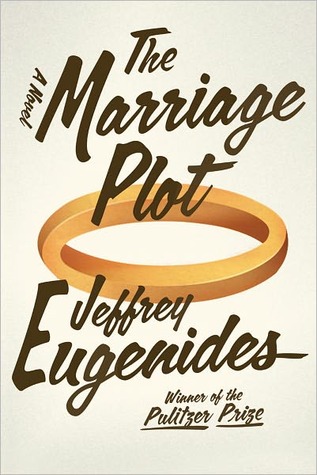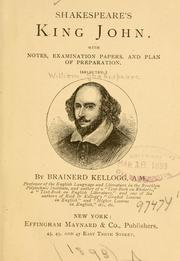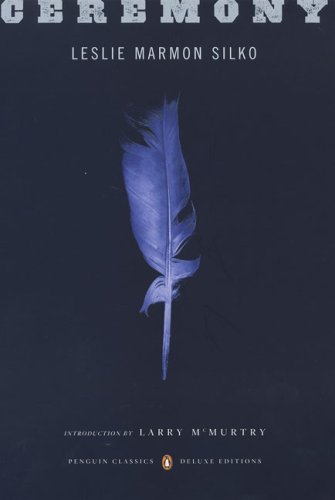If This Is A Man/The Truce Book Review
If This Is A Man (first publ. 1947), Primo Levi's first book, and its successor
The Truce (publ. 1963) are two works best read together, the former details Levi's time spent in the hellish extermination camp Auschwitz, whilst the latter tells of his gradual return back to home and some sense of normality. I found both to be exemplary, emotional works, being substantially levied to another level of appreciation thanks to Levi's wise, gentle, calm tone maintained throughout despite the shocking and horrific events being described and ended up finishing the duo with a far more hopeful outlook on life and the human seed in general than ever before.
The main aim and effect of such an extermination camp as Auschwitz in Levi's opinion is to first and foremost destroy destroy the man psychologically, so that he loses any sense of humanity, this meaning that by the time it comes to destroy him physically there's nothing much left to destroy. Hence the prisoners being
'locked in, naked, sheared and standing', the sibilant sounds along with the use of the verb
'sheared' helping to enforce the idea of livestock, not humans, being treated here. One loses there name to become merely a number in a long list of others, it being his individual quirks and flaws that makes a man just that, thus the line
'melting into a single substance' in describing the camp inmates is particularly disturbing. To be a man also one must have an opinion, an opinion which they are able to act upon and voice, a quality that was viciously beaten out of the Jews at the hands of the Nazis, as seen in the saddening line,
'here we are, docile under your gaze; from our side you have nothing more to fear; no acts of violence, no words of defiance, not even a look of judgement'. Here it is the repetition of negating, negative lexis that adds to the bleak outlook. Equally the sense of the long-term mind-set lost in Auschwitz and ability to plan for the future is something that one must appreciate in its existence, the line
'the problem of the remote future has grown pale to them and has lost all intensity in face of far more urgent and concrete problems of the near future' exemplifying this overwhelming sense of the short term. Perhaps the main quality of man that Levi outlines as being lost in such an environment is his ability for compassion, a 'every-man-for-himself' mind-set coming to dominate matters, indeed it is noted that
'survival without renunciation of any part of one's own moral world...was conceded only to very few superior individuals, made of the stuff of martyrs and saints'. Reading and envisaging these scenes I really came to appreciate the fact that I have the ability to showcase and utilize such ways of acting and felt a huge incubus to voice my opinions, stick to what makes me an individual and most importantly be kind, for not everyone in this world has the ability to do so. Levi, in his afterword, reflects that it was perhaps his sustained insistence to
'recognize always, even in the darkest days, in [his] companions and in [his self], men, not things', though certain guide-like figures were needed to ensure that this belief was maintained against the opposing force of Nazi brutality. The most notable of these guides is Lorenzo, a local civilian who gave Levi food for around 6 months meaning that Levi, besides benefiting in terms of the typical type of nourishment, was spiritually nourished. Indeed, he makes the following observation:
'his humanity was pure and uncontaminated, he was outside this world of negation. Thanks to Lorenzo, I managed not to forget that I myself was a man'
Thus another clear message of the two books is never to lose one's humanity, this is more essential and important than our physical needs. Critic Paul Bailey, integrating one of Levi's morals in
If This Is A Man (
'we must not become beasts; that even in this place one can survive, and therefore one must want to survive, to tell the story, to bear witness; and that to survive we must force ourselves to save at least the skeleton, the scaffolding, the form of civilization') indeed reflects how both works, and all of Levi's writings in general, essentially
'remind us that the scaffolding is worth saving.'
The sense of lost humanity only starts to be revoked near the very end of
If This Is A Man, being regained further in
The Truce, leading to beautiful and, most importantly, hopeful scenes. One of the main turning points in the two works comes when an individual in the same hospital barracks as Levi offers up his ration to Levi and two others, who have been slaving all day to get food supplies, the camp having been evacuated by the Germans. Levi notes how
'only a day before a similar event would have been inconceivable', reflecting how slowly, gradually humanity is reviving. Gradually human relationships start to become more important to Levi and his fellow survivors, in
The Truce indeed he notes how
'the need for human contact is to be numbered among the primordial needs' and images such as that evoked by the trek in the snow in which
'each [person] like a blind man, [holds] on to the man in front' help to illuminate the beauty of relationships and human contact. Indeed,
The Truce acts rather as a celebration of man, in all his forms, shapes, sizes, personalities and nationalities. You have the lovable rogue Cesare (who sells a brass ring brought for four rubles to an unfortunate individual, believing it to be gold, for fifty), the ominous Greek Mordo Nahum who holds the belief that every moment of ones life should be profitable, the cold, hostile Russian Lieutenant who turns out to be
'a passionate fan of tap-dancing in his spare time' and many others. The variety of humanity ends up being celebrated and appreciated in a really heart-warming manner and this is what both books really attempt to do, celebrate man and the human condition, expressing how there is still yet hope.
Despite the essentially hopeful tone to both works, Levi does also face the bleaker skies ahead for man. For instance, liberation from Auschwitz does not lead to an instant rush of joy and happiness, a horrific event has just occurred, with less that 5% of the Italians sent to the concentration camps returning, Levi frequently making biblical allusions (to be more precise allusions from the Torah) in lines such as
'liberty...had not taken us to the Promised Land', a line which, although in the practical sense referring to the length of the process of returning home, on a wider scale reflects how things will never return back or advance to an uncontaminated level of happiness, there will always be dangerous flaws and faults in the human condition, but for every negative flaw, there are a whole multitude to be celebrated. Equally Levi receives several warnings throughout
The Truce from various characters, most notably The Greek, that
'this life is a war', inferring that the persecution that has faced the Jews over the centuries will not suddenly stop, even in the face of such an atrocity as the extermination camps being revealed, persecution will always have to be fought against. It is also notable how Levi chose to end
The Truce by an a scene inferring how his trauma will not end, the 'Auschwitz caesura' will continue to have a massive effect on him. The last scene refers to Levi's continual nightmare and the voice, that evokes so many negative emotions, returning...
'it is the dawn command of Auschwitz, a foreign word, feared and expected: get up, 'Wstawach'
I also got a real sense of the importance of literature and language on the human condition and human relationships in general through both works. The former is best seen in
If This Is A Man in which Levi struggles to teach a few verses of Dante's to a French camp-mate, eventually making the observation that
'[he] would give today's soup to know how to connect' two separate sections. Literature gives a source of spiritual nourishment, which is far more valuable than physical nourishment, it is a means to keep our humanity, something needed in such a dehumanizing place as Auschwitz. The importance of language is a theme that appears frequently throughout
The Truce, (though both books are filled to the brim with a whole cacophony of languages whether it be Yiddish, German, Russian, French or Polish) Levi noting how the
'difficulties of language reduced' him and one Russian guard to a
'stunted and primordial' relationship, whilst equally noting how his tagging on with the Greek only occurred through their being
'drawn together by having two languages in common'. Thus Levi's extensive knowledge of languages (at one point he carries 'on the most extravagant and chaotic conversation in Latin' with a Priest so as to find out where the local cathedral is) certainly acted as an influential force in guiding him back home.
Levi notes in his afterword how he doubts that he would have ended up as a writer had it not been for Auschwitz, noting how he felt as if he had books stored in his brain waiting to be released upon his return, hence relating the
'liberating joy of recounting [his] story'. However, although there is a real sense of Levi having written both books for himself, as a means to reveal the story that has to be heard, no matter how unsavory it is, reading them is still an enriching and rewarding process for the reader.
If This Is A Man and
The Truce are also essential psychological tools, being more an evaluation of the human condition than an account of the events in and out of Auschwitz, as seen in the line
'no human experience is without meaning or unworthy of analysis, and...fundamental values, even if they are not positive, can be deduced from this particular world which we are describing'. There's also the sense of an even more personal reason for Levi writing such an account, a means for closure, indeed the idea of setting up a
'screen' between the horrific past and the present is something expressed frequently throughout
The Truce, this perhaps being a reason for the Greek 'workaholic' tendencies, activity being a means to prevent the need to stop and think about what one has just endured. Levi's writing style is extraordinary, despite being so badly treated at the hands of the Germans in the extermination camps and having the full right to present events in a vengeful, exaggerated light or to conversely present the Jews themselves as white, holy, innocent victims, Levi chose the path of neutrality, using the
'calm, sober language of witness'. This neutral, honest depiction adds further weight to what Levi's presenting, the truth speaks for itself and is equally, if not more powerful than the exaggerated accounts of many of his contemporaries. It also makes reading
If This Is A Man and
The Truce more comfortable than they would otherwise be, the reader being able to judge and evaluate matters in a calmer mind-set, making the experience of reading all the more special. Critic Paul Bailey indeed lauds this
'freedom from self-indulgence' chosen by Levi, outlining his expectations for the duo to be viewed as classics in Britain and America in years to come, as they are already viewed in Levi's native Italy. As always with Levi I found little to criticize about either work and thoroughly recommend them both for individuals looking for a truthful, personal account of events in Poland 1944-5, those who enjoy books with a psychological framework or those looking for an easy, yet thought-provoking and powerful, read.





